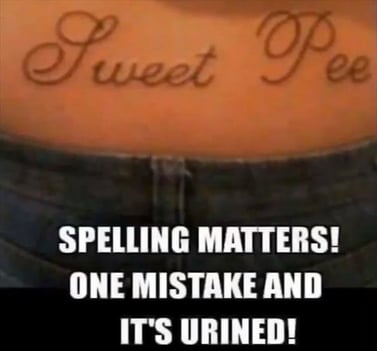 This is the perfect time to talk about the "quality" of income. Real estate crashes seem to strike about every ten to fourteen years, and it has been thirteen years since the Great Recession. If we were to have another commercial real estate crash, would you rather own a building leased to Betty's Gift Shop or one leased to Amazon.com?
This is the perfect time to talk about the "quality" of income. Real estate crashes seem to strike about every ten to fourteen years, and it has been thirteen years since the Great Recession. If we were to have another commercial real estate crash, would you rather own a building leased to Betty's Gift Shop or one leased to Amazon.com?

The quality of income refers to the likelihood that you are going to receive it. All money is green, whether it comes from the headquarters of the Catholic Church in America or from Boom-Boom's Place, LLC, a chain of gentlemen's clubs in southern Louisiana.
But is it likely that Boom-Boom's Place may have a little trouble making its rent payments or its mortgage loan payments if the economy completely tanks? Guys are less likely to be drinking five beers a night and spending $30 on tips to the dancers if they are out of work.
Okay, obviously, we would rather be on the receiving end of $7,000 per month from Amazon.com than from Betty's Gift Shop; but in order to win that deal, we have to make some sacrifices.

Amazon.com, Inc. signs a lease for a small industrial building, perhaps used to repair its delivery trucks. Upon the execution (signing) of the lease, the owners of the little industrial building offers the property for sale.
Now normal industrial buildings in Portland are selling at, say, 6.5% cap rates. In other words, if an investor paid all cash for a garden-vareity industrial building in Portland, he could expect to earn, after paying all expenses and setting aside a little money every year to eventually replace the roof and the HVAC system in 12 years, a return on his money of around 6.5%.
A cap rate is just the return on your money if you paid all cash for a commercial building.

Wake up, folks! The money
in this industry is in loan servicing fees!
Before computing that return on your money, always remember that you need to set aside a little money every year to replace the roof and the HVAC system. This is called the replacement reserve.
Okay, so the seller has a building leased to Amazon.com for $7,000 per month. Your accountant tells you that you need to set aside $850 per month to eventually replace the roof, repave the parking lot, and replace the HVAC system. So the investment is scheduled to yield $6,150 per month.
Since industrial buildings in Portland typically sell at a 6.5% cap rate, you compute the value as follows: Six-thousand-one-hundred-fifty dollars per month times twelve months suggests an annual net operating income ("NOI") of $73,800.

If you divide the annual net operating income (NOI) by the proper cap rate (expressed as a decimal), you get its value.
Okay, so $73,800 divided by .065 (6.5% expressed as decimal) equals a value $1.14 million. Therefore you submit your offer of $1.14 million. The selling broker falls out of his chair laughing. What the heck?
"George," he says, "Betty's Gift Shop might sell for $1.14 million (a 6.5% cap rate), but this is Amazon.com! The world could be in complete chaos, yet a buyer could absolutely depend on Amazon making its rent payments. There are investors out there who need the security of predictable payments, and they will pay far extra to buy that stream of predictable payments."

"George, I have offers on this building of $1.5 million, $1.72 million, and finally $1.85 million. That works out to a 4% cap rate."
When a real estate and stock market crash is coming, it's all about the quality of the income.

















